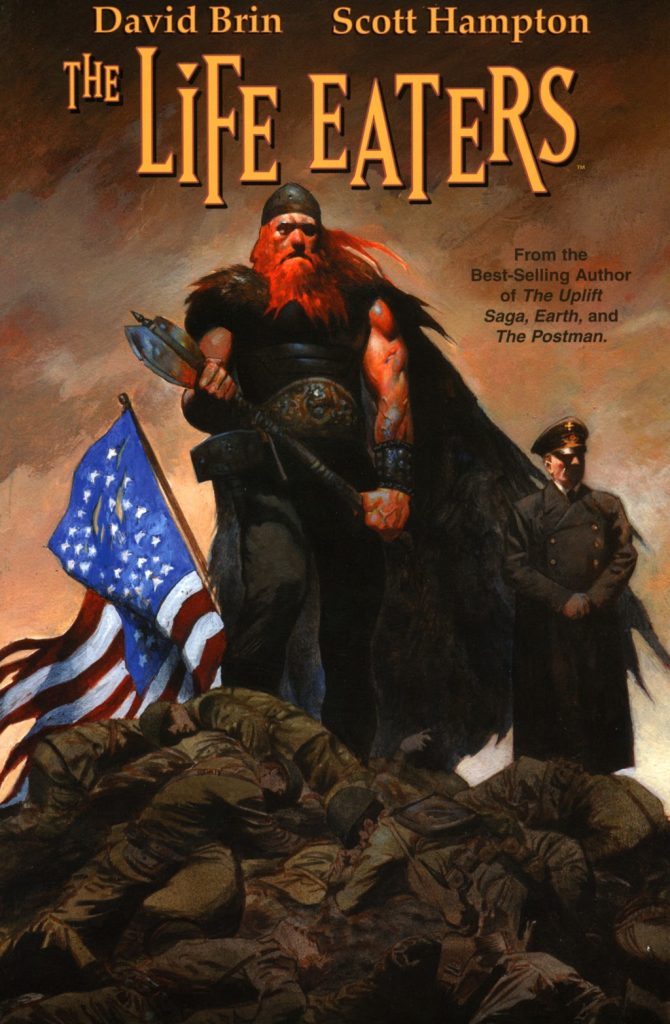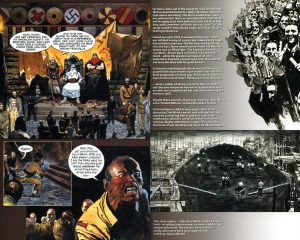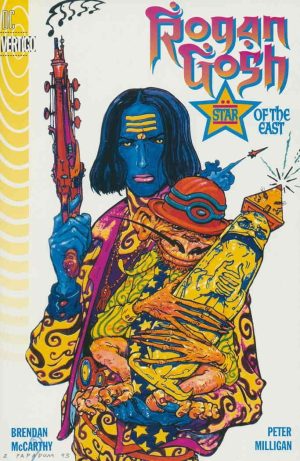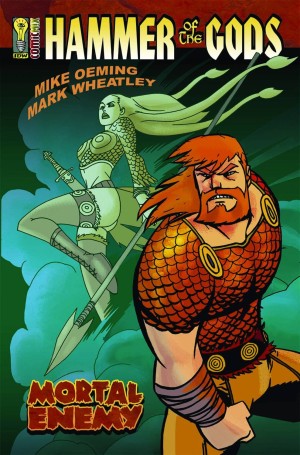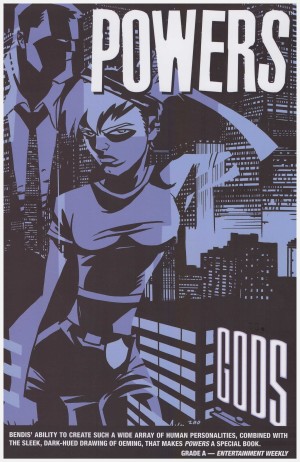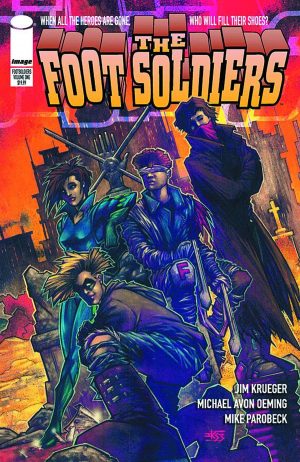Review by Ian Keogh
David Brin has a heavyweight reputation as a science fiction writer, and very occasionally takes a step into comics. His most acclaimed dabble is The Life Eaters, which takes as its starting point Brin’s novella about Thor meeting Captain America during World War II, and develops into an epic where the Nazis control almost the entire world thanks to an alliance with the Norse gods of old. It’s comics, but with heavy infusions of text beyond the normal captions.
By 1962 there is still a resistance to the Nazis, but it’s increasingly desperate despite Loki’s aid, and he’s helping again, accompanied by mythologist Chris Turing and commandos on a raid in Scandinavia. It goes wrong, and Turing is captured, leading to what under other circumstances would be the original idea of Captain America meeting Thor. However, not the comforting blonde Thor at home with Marvel, but an altogether more violent red-haired warrior.
Scott Hampton delivers suitably iconic art for the unknown terrors mankind now faces. Painted images of heroism and courage mix with portraits of nobility, but the style is occasionally too static when the need is for action.
For the portion of The Life Eaters set in the 1960s Brin combines the present with the history that brought humanity to that point, but he’s compressing an epic story spanning decades into too few pages. The great blocks of text with illustrations are an ungainly fusion, and this cries out for a page count enabling the proper exploration of Brin’s ideas in comic form. There’s change for the second chapter, not just the jump to the 1970s as Brin absorbs another of humanity’s major wars into his story, but he dispenses with the blocks of text and embraces the form of comics.
There’s a logical leap beyond the Norse gods as the wider world is considered, along with a sorrowful disbelief at the acceleration of what’s now happening to our planet as Brin keeps feeding in ideas, but not all of them are first rate. In fact some are surprisingly unoriginal for a writer with Brin’s reputation. A convenient rescue by dolphins is one, brief enough not to fall into spoiler territory. Ultimately the message is of humanity prevailing despite overwhelming odds, but even this feels half-hearted, as a means of ending a story that remains unfinished. In the scheme of things one of the many threats has been dealt with, yet at considerable cost, so what hope is there really for the remainder?
It’s better than average, but some online reviews consider this a masterpiece, so enthusiasm for Brin’s storytelling seemingly weighs heavy.
